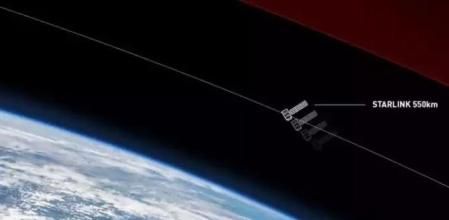The business battle between the two wealthiest people in the world moves to Spain. Amazon Kuiper, the tech giant's division to provide high-speed and affordable internet via low-orbit satellites, has obtained government authorization to operate. This way, Jeff Bezos' company, whose grandfather was born in a town in Valladolid, is finalizing its entry into this business to compete directly against Elon Musk and Starlink. Musk's division is already operating throughout the country, offering access to broadband services at affordable prices.
Amazon's subsidiary requested authorization from the Ministry for Digital Transformation last year and received the green light on December 9th, according to sources close to the company. Currently, Bezos' company has not yet started offering its commercial services worldwide, but the deployment is imminent. In the Spanish market, its arrival should occur this year, but before that, it needs to set up satellite signal communication facilities. The company is considering several locations. After that, Amazon will be able to offer its fast and affordable connection service to individuals.
Amazon actually wants to specialize as an internet provider in rural Spain. The company itself explains on its website that “billions of people worldwide do not have secure access to broadband” and that “poor connectivity means limited access to modern communications, education, health services, and other critical resources, which can create an economic disadvantage for underserved and unserved communities.”
Amazon is launching an internet service for 29 euros per month to compete with the rates offered by Starlink
Heading to rural Spain sets Starlink apart, as the company is already operating nationwide on a civilian level, particularly in major cities that are even facing saturation due to the high number of clients. This is the case for an area located between Madrid and Guadalajara. Elsewhere in the world, there are more saturated areas, such as San Diego, Sacramento, or Austin in the United States; and London and its outskirts, where the service is “sold out”. Andorra also currently lacks coverage from Musk's company.
Amazon is set to begin launching the satellites that will provide internet coverage worldwide in the coming months. It will do so via its New Glenn rockets, from its company Blue Origin, which aims to compete with the self-propelled devices from SpaceX, led by Elon Musk. The competition is also unfolding in this field. Amazon estimates that it will have over 3,000 devices in orbit, compared to Musk's 6,000.
Amazon's satellites for providing internet are being manufactured in Kirkland, Washington, at facilities that were inaugurated in April. The launch of these satellites will take place in Florida, where Bezos' company has strengthened its presence at the Kennedy Space Center with a new facility for this project.
The technology company wants to specialize in being the provider for rural and depopulated areas
Customers of Amazon Kuiper will have a receiver that will allow them to access the Internet. The company explains that it already has three models, an ultra-compact one with 100 Mbps, a standard one with 400 Mbps, and a third one for businesses or governments with one gigabyte per second. Bezos' company adds that they have not yet finalized the prices for each service, but they do anticipate that they will be low-cost, just like their most popular devices, such as the Echo Dot speaker and the Fire TV Stick streaming line.
Starlink, for its part, offers Internet for households, for users who want to travel, or for use on boats. It is also available for businesses and governments. The price range varies from 29 euros to 360 euros per month. The battle for customers in Spain between the two American magnates is underway.
Hispasat and Government Communications
One of the companies that will be affected by the emergence of Amazon Kuiper in Spain is Hispasat, the public company that offers satellite internet access services in all regions of Spain. The commercial price offered by the firm chaired by former minister Pedro Duque is 35 euros per month for a service with a speed of 100 Mbps, slightly above the basic service of Starlink. The private competition is commercially harming the company dependent on the State Corporation for Industrial Participations (SEPI). The struggle for customers with Musk's and Bezos' companies is also a reason why the acquisition of the company by Indra has not materialized. The public corporation is still studying the operation and has doubts about executing it, primarily due to the price being discussed to close a deal in a highly competitive and changing global market. The emergence of Amazon in Spain does not affect the secure government communications through satellites, which still rely on Hisdesat. The company is about to launch the most modern satellite in Europe into orbit.


